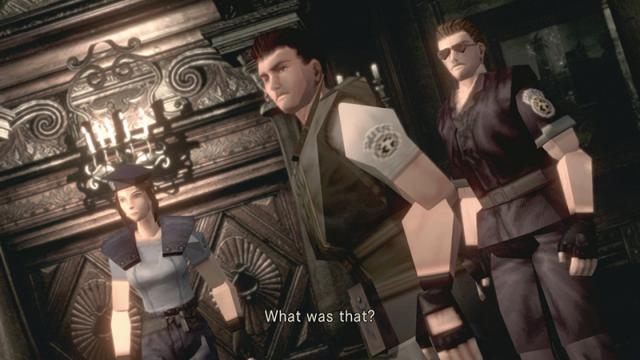News
5 Reasons Why Voice Acting Was So Poor in 90s Gaming

There was once a time where fluffed lines in video games just sort of flew over our heads. We didn't take a great deal of notice in them, and, if we did, we just sort of shrugged them off like a bad joke. But since the popularity spike of video games escalated to new heights after the new millennium, those little details soon became rather noticeable. The likes of phenomenal graphics soon entwined with top-tier voice actors, and before long, the nineties generation of gaming became somewhat laughable.
Looking back at the gaming industry as a whole, we're quick to spot the countless flaws in classic triple-A titles. Like, for example, the dreadful voice acting in Resident Evil. Something like that has reached a cringeworthy status that only manages to make us blush rather than immerse as Capcom had originally planned. However, behind the humorous, yet awfully monotone dialogue and dicey cuts lie perfectly good explanations for the horrific voice works.
So, in case you were wondering, here are five reasons why voice acting was so poor in the nineties era of gaming.

The bad voice acting wasn't always intentional.
5. The language barrier between the developer and the actor
During the nineties, Japanese developers shared a very wealthy success when it came to best-selling video games. However, when it came to transferring the finer details to work with the Western market, a language barrier quickly led to awkward misdirections and cringe-worthy voice acting from third-party talent firms. Again, using Resident Evil, or even Silent Hill as an example here. With these two all-time classics, insiders who worked on both games have mentioned the difficulty in translation when it came to recording the scripts. And, as we've seen — it didn't go down entirely well, either.
Capcom would have had a vision and a sound that they wanted to create for the Japanese market. But, the tone and dialogue soon fell flat when trying to transfer the idea to American voice actors who, at the time, didn't totally understand the picture. This, in turn, led to a rather awkward performance and not so polished project.
4. Developers scraped the barrel for cheaper actors
As the saying goes: “you get what you pay for“. So, of course, during the nineties era of gaming, the voice acting wasn't exactly the highest priority on a developers list. In fact, it came rather low when next to the likes of the everchanging graphics and evolving gameplay styles. This, sadly, led many directors to quite literally scrape the bottom of the barrel and hire cheaper talent in order to cram more into the working title. This, although strange, has worked wonders for games that don't exactly narrow the focal point on narrative alone. But if a game focuses purely on the emotions of a playable character; the developer should be willing to fork out the extra few bucks for the better actor. In the cases of hundreds of nineties titles, however — shortcuts were most definitely taken.

“What was that noise?”
3. Directors requested unrealistic work from clueless talent
One thing video games does well is, of course, provide us with the illusion to leave reality behind in exchange for something much more beautiful. That's something we've always been grateful for, and we can only thank these many people who build such wondrous worlds. Only, when it comes to voice acting during some rather unrealistic scenes; it can often spoil the illusion and plummet us directly back to reality. Like being knocked out — or stabbed, for example. Not all voice actors know what it's like to be knocked out — or stabbed. So, when it comes to producing sound over something an actor isn't exactly sure of — we often get mixed results. These soundboards then get passed on to editors, and the final versions that are used aren't always the most favoured.
2. The lack of engagement with the voice actor
A lot of time in the gaming creation process, people won't even meet the team they're working for. And voice actors in specific, especially during the nineties, would often be handed a script and left to record for two weeks. There would be minimal direction from anybody in the studio, and most takes would go without any form of feedback. This, sadly, led many voice actors to wing their part without even understanding the concept or backstory to the characters they portray.

Oh boy, how far we've come since then.
1. Voice actors would often speak to walls instead of people
Seems a bit strange, but for the most part, voice actors would never physically meet the other cast members. This means that when we would listen to a conversation between characters on-screen, the actors behind them would've recorded their parts in whole other studios. And, as predicted, this led to some rather choppy and dull dialogue with zero emotion whatsoever. Even the most intense segments of any game were recorded from various actors speaking to a wall with no understanding of how the other actor would respond. Since then, however, voice actors have been merged together to create a more believable on-screen chemistry — and we couldn't be more relieved over that fact.











